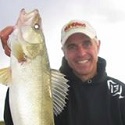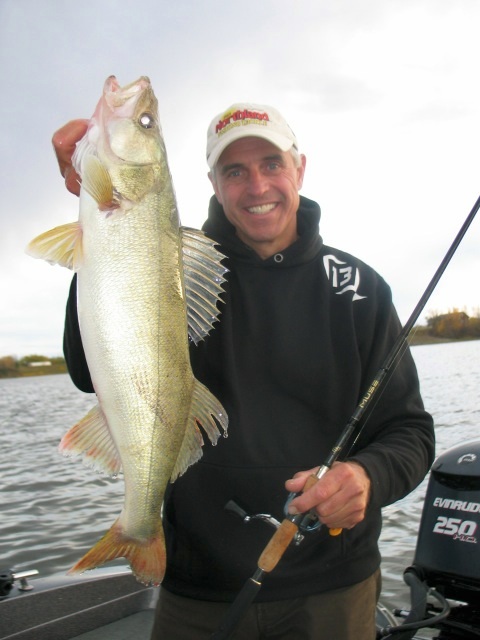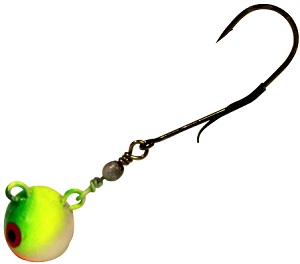 Winter’s demise signals the beginning of an annual rite of spring, as schools of prespawn walleyes surge upstream into rivers across the Walleye Belt. Although the water is cool and fish location often changes day by day—even hour by hour—savvy anglers can enjoy some of the year’s best fishing.
Winter’s demise signals the beginning of an annual rite of spring, as schools of prespawn walleyes surge upstream into rivers across the Walleye Belt. Although the water is cool and fish location often changes day by day—even hour by hour—savvy anglers can enjoy some of the year’s best fishing.
 My favorite scenarios are rivers that flow into larger bodies of water, such as the Rainy River at Lake of the Woods or Detroit River at western Lake Erie. In these situations, walleyes from the main lake gather at the river mouth in late winter, then move upstream toward spawning areas as the ice recedes, boosting the river’s walleye population to its highest point of the year.
My favorite scenarios are rivers that flow into larger bodies of water, such as the Rainy River at Lake of the Woods or Detroit River at western Lake Erie. In these situations, walleyes from the main lake gather at the river mouth in late winter, then move upstream toward spawning areas as the ice recedes, boosting the river’s walleye population to its highest point of the year.
I typically start my search at the river mouth and work my way upstream, checking channel edges and a variety of current breaks. Main-channel holes are among my favorite stops, because they attract waves of migrating fish and often “recharge” several times during a day of fishing.
Current seams and shoreline eddies also hold fish, but don’t overlook anything that blocks the current or offers winter-weary walleyes a chance to rest and feed.
Top tactics include vertical jigging, either from an anchored position or while slipping your boat downstream with the trolling motor, keeping your line as vertical as possible.
 Long-shank leadheads like Northland Fishing Tackle’s Slurp! Jig and round-headed RZ Jig are hard to beat because they hold live and artificial tippings well, while yielding solid hooksets. Northland’s new Swivel-Head Jig is another great choice, because the rotating hook gives plastics and live bait extra action you don’t get with fixed-position hooks.
Long-shank leadheads like Northland Fishing Tackle’s Slurp! Jig and round-headed RZ Jig are hard to beat because they hold live and artificial tippings well, while yielding solid hooksets. Northland’s new Swivel-Head Jig is another great choice, because the rotating hook gives plastics and live bait extra action you don’t get with fixed-position hooks.
Tip jigs with a 3- to 5-inch scented soft plastic trailer, which gives walleyes a target in the turbid, relatively dark waters common in spring river fishing. A variety of softbaits attract fish and trigger strikes, including Northland’s Impulse Paddle Minnows, Ringworms, Smelt Minnows and even old-school creature designs. Sweeten the presentation with extra scent and flavor by skull-hooking a shiner or fathead minnow on top of the plastic piggy-back style.
Since the water is still very cool, keep jig strokes to a minimum. Often, a slow and methodical lift-drop cadence within a few inches of bottom is all it takes, but sometimes simply holding the jig as still as possible an inch or two off bottom is the best approach.
As the water warms, walleyes often shift into shallower water near shoreline spawning areas. Pitch the same style jigs and tippings toward the bank and swim, drag and pendulum them back to the boat, keeping the jig close to bottom on the retrieve.
Based in Walker, Minnesota, noted fishing authority and outdoor communicator Chip Leer, www.chipleer.com, operates Fishing the WildSide, which offers a full suite of promotional, product development and consultation services. For more information, call (218) 547-4714 or email Chip@fishingthewildside.net.
